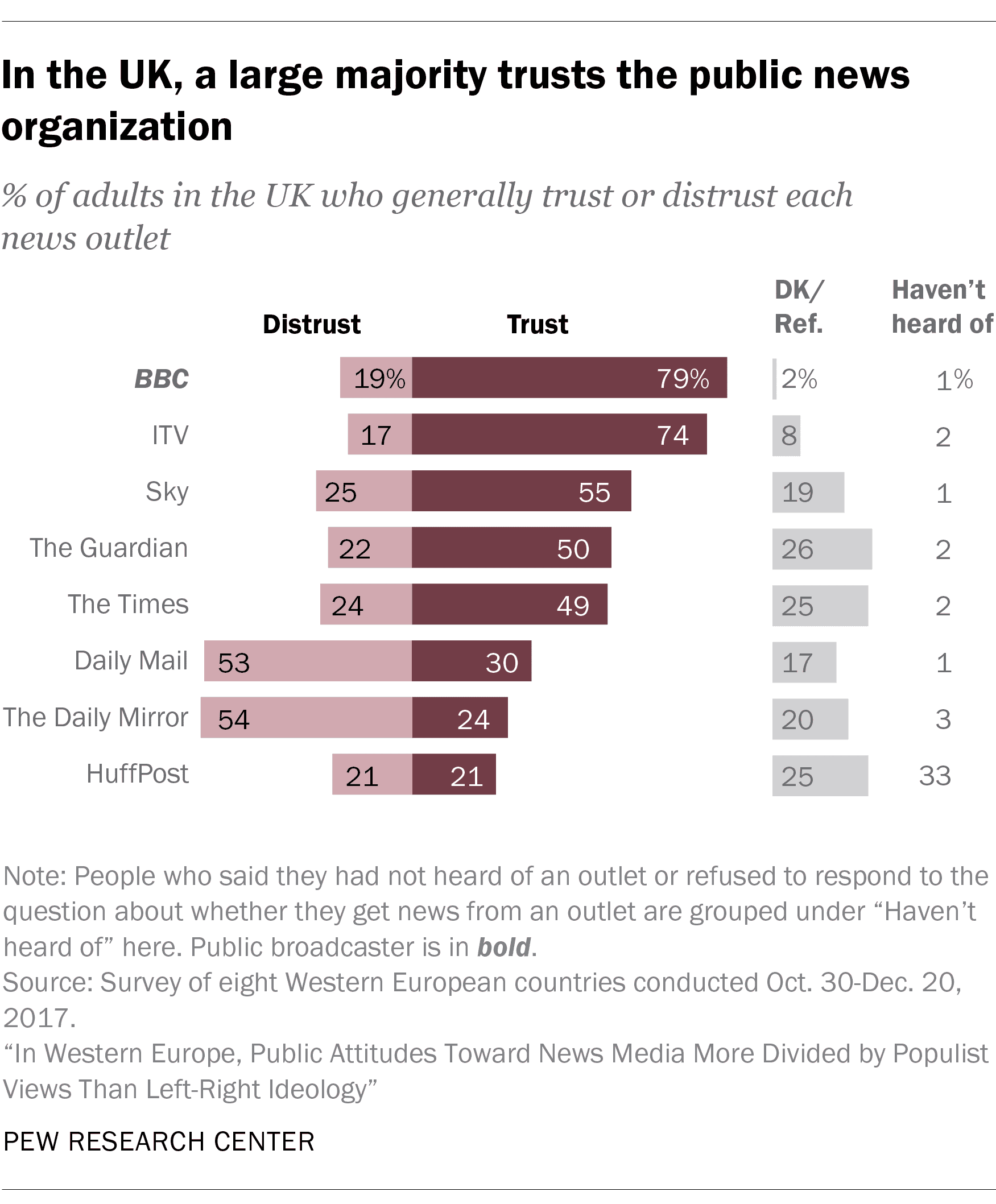How much does the UK public trust the media?
Fewer than one-in-five British adults follow news about other countries very closely, according to a 2017 survey conducted by Pew Research Center.
That’s less than half the number who say they follow news about the United Kingdom very closely (44%).
This suggests that to the degree British adults are encountering information about international development and NGOs in their media diet, they likely are paying less attention to that content than to news on their own country or even their city or town.
The British media landscape has some unique characteristics compared to other Western European countries that Pew Research Center polled about news media use and attitudes. On one hand, British adults cluster around a single main news source: the BBC. The outlet remains the best method of reaching British adults, as it’s not only the most widely used outlet in the country, but also the most trusted.
Subscribe to our newsletter
Our weekly email newsletter, Network News, is an indispensable weekly digest of the latest updates on funding, jobs, resources, news and learning opportunities in the international development sector.
Get Network NewsOn the other hand, British trust in and approval of the news media overall is relatively low compared to the other countries surveyed — and trust and use vary significantly based on people’s ideology. Understanding the varied use — and perceived credibility of — each outlet may be important for NGOs navigating this relatively polarised media landscape, given that confidence in the messenger can impact how people perceive information.
Lower levels of trust in the UK media
Among the eight countries surveyed, British adults are the most likely to share a common news source: 48% say the BBC is their main source for news. And BBC usage is widespread: 92% of adults use this outlet at least once a week, which is the highest of all 63 outlets asked about across the eight countries. Whereas those under 30 are less likely to turn to public brands in the other seven countries surveyed, the BBC is the most named news source across all age groups in the UK.

But British adults express low levels of trust and approval of their news media overall. This is similar to what the survey finds in Italy, Spain and France, where there is much more fragmentation in terms of where people turn for news.
Just 32% of adults in the UK say they trust the news media at least somewhat. 48% say their news media do a good job of getting the facts right, 46% say they provide coverage independent of corporate influence and 37% say their news coverage is politically neutral. When it comes to covering important topics like immigration, 44% of British adults say that the media is doing a good job.
Trust differs whether you’re on the left or right
Although trust in the news media is lower in the UK than some other European countries, a majority of British adults still trust some specific sources. For example, 79% of Britons trust the BBC, 74% trust ITV and 55% trust Sky.
But, there is less agreement when it comes to other sources, especially the Daily Mail, the Daily Mirror and HuffPost. Less than a third of the public trusts each of these outlets — and those on the ideological left and right disagree about how much they trust them.
For example, 38% of those who place themselves on the right side of the ideological spectrum trust the Daily Mail, compared with only 20% of those who place themselves on the left.
When it comes to HuffPost, the pattern is reversed: 35% of those on the left trust the source, versus 19% of those on the right. Divides in trust between those on the left and right is largest when it comes to The Guardian: 69% of those on the left trust the source, compared with 46% of people on the right.
These are just some of the key findings about the media system in the United Kingdom. For more, please see our fact sheet and report about how media habits differ by age group, as well as a report that expands on the findings in this post and offers some insights into social media use.
Category
News & ViewsThemes
Communications


